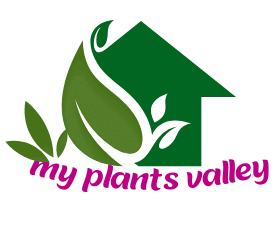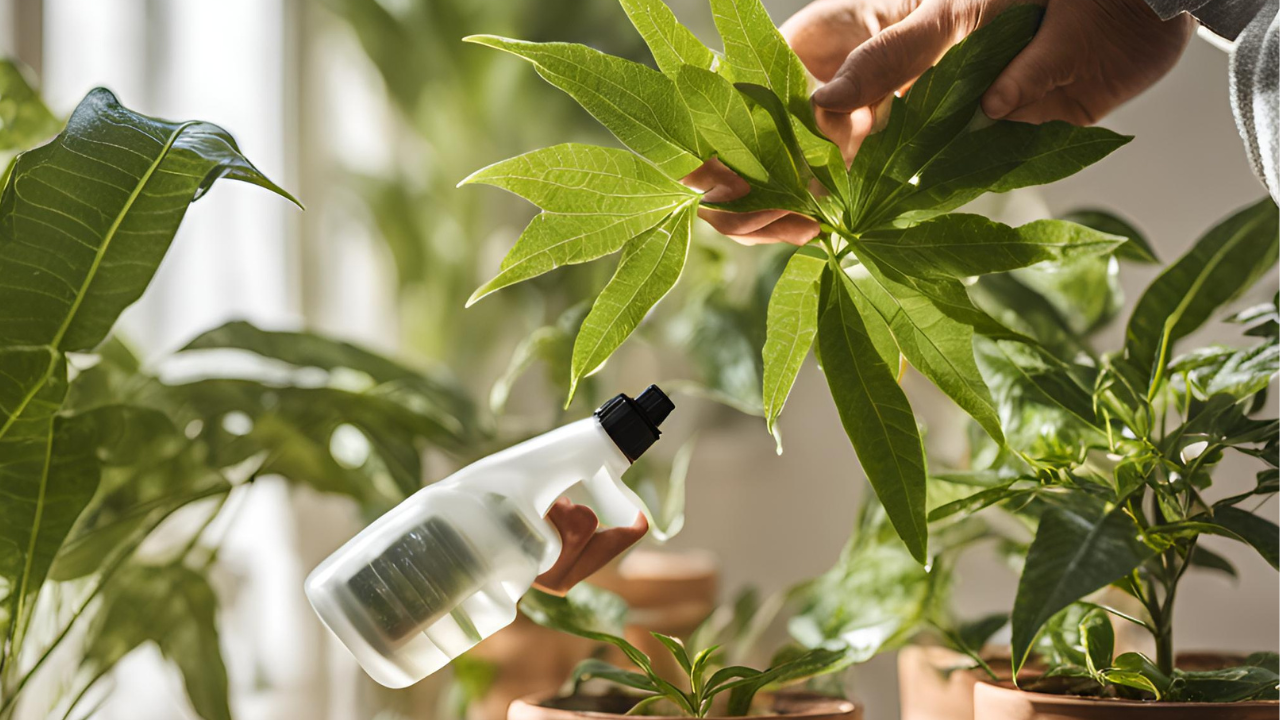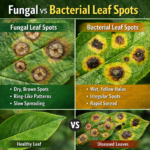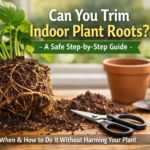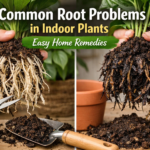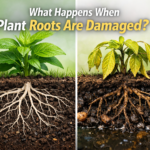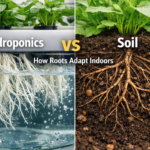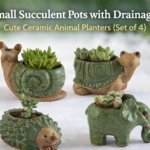Neem oil is a popular, natural solution for keeping pests at bay in your garden, but if you’re growing edible plants, it’s essential to use it correctly. Derived from the seeds of the neem tree, this oil contains compounds that act as insecticides and fungicides, making it a go-to for organic gardeners. However, safety is vital when applying neem oil to fruits, vegetables, or herbs.
In this article, we’ll explore how to use neem oil safely on edible plants so you can protect your crops from harmful pests while ensuring your harvest remains healthy and safe to eat. From the proper dilution methods to application timing, we’ll cover all the essential tips for getting the most out of neem oil without risking plant damage or affecting the flavor of your produce. Whether you’re a seasoned gardener or just starting, understanding how to use neem oil properly can help keep your garden thriving.
Introduction to Neem Oil and Its Uses
Neem oil, extracted from the seeds of the neem tree, is widely known for its natural pest control properties. This organic oil contains active compounds like azadirachtin, which repel and kill various insects. Gardeners use neem oil to treat plants for common pests like aphids, spider mites, and whiteflies. It also has antifungal properties, helping to combat diseases such as powdery mildew and black spots. Neem oil is non-toxic to humans and pets, making it an ideal choice for sustainable, chemical-free gardening.
What is Neem Oil?

Neem oil is a natural, plant-based oil derived from the seeds of the neem tree (Azadirachta indica), native to India and Southeast Asia. This versatile oil has been used for centuries in agriculture, skincare, and traditional medicine due to its powerful antibacterial, antifungal, and insecticidal properties. In modern gardening, neem oil is a popular choice for organic pest control, especially for edible plants, because it offers an environmentally friendly alternative to synthetic pesticides.
Importance of Protecting Edible Plants

Protecting edible plants from pests is crucial for a healthy, thriving garden. Pests can damage crops, spread diseases, and reduce yields. Here’s why protecting your edible plants matters:
- Healthier Crops: Keeps pests from damaging leaves and fruits.
- Higher Yields: Minimizes crop loss, ensuring more produce.
- Disease Prevention: Reduces the spread of plant-borne diseases.
- Safe Harvest: Organic treatments like neem oil ensure your plants remain safe for consumption without harmful chemicals.
Composition of Neem Oil
Neem oil is rich in various bioactive compounds, with azadirachtin being the most potent. Azadirachtin is the primary insecticidal component, working by disrupting pests’ growth and reproductive cycles. Other ingredients include nimbin and salannin, which also contribute to its insect-repelling qualities. Neem oil is composed of fatty acids, triglycerides, and antioxidants, making it beneficial for both plants and humans.
Neem Oil as an Organic Pesticide
Neem oil is a widely used organic pesticide, valued for its natural, eco-friendly properties. Derived from the seeds of the neem tree, its active ingredient, azadirachtin, disrupts the life cycles of pests by inhibiting their feeding, growth, and reproduction. This makes it effective against a broad spectrum of garden pests like aphids, spider mites, and whiteflies.
Unlike synthetic pesticides, neem oil breaks down quickly in the environment, leaving no harmful residues. When used as directed, it is safe for edible plants, pets, and humans. Neem oil also has fungicidal properties, helping prevent mildew and rust. This versatility makes it an ideal solution for organic gardening.
For best results, neem oil should be applied during cooler parts of the day, avoiding direct sunlight to prevent plant damage. Its biodegradable nature and effectiveness ensure it fits well into sustainable gardening practices while protecting crops from pests and fungal infections.
Benefits of Using Neem Oil on Edible Plants
- Natural Pest Control: Neem oil effectively combats common pests like aphids, spider mites, and whiteflies. It disrupts their feeding and reproductive cycles, reducing infestations without harming beneficial insects such as bees and ladybugs.
- Antifungal Properties: Neem oil helps prevent and treat fungal diseases like powdery mildew, black spots, and rust, keeping your plants healthy and disease-free.
- Non-Toxic to Humans and Pets: Unlike synthetic pesticides, neem oil is safe for children, pets, and wildlife. Since it breaks down quickly in the environment, it won’t leave harmful residues on your fruits, vegetables, or herbs.
- Eco-Friendly: Neem oil is biodegradable and poses no long-term risks to soil or water sources, making it an environmentally responsible choice for sustainable gardening.
- Enhances Plant Health: Regular use of neem oil deters pests and boosts overall plant health by acting as a mild fertilizer, promoting more robust growth and resistance to future infestations.
Is Neem Oil Safe for Edible Plants?

Neem oil is considered safe for edible plants when used correctly. It is a natural pesticide derived from the seeds of the neem tree and is commonly used in organic gardening. Neem oil helps control many pests, such as aphids, mites, and whiteflies, making it a popular choice for protecting vegetables, fruits, and herbs.
When using neem oil on edible plants, following the recommended dilution guidelines is essential to avoid plant damage. Typically, it is mixed with water and sometimes a small amount of soap to help the oil stick to the plants. Neem oil breaks down quickly in sunlight and water, reducing the risk of harmful residue on your crops.
It’s advisable to avoid spraying neem oil directly before harvesting. A waiting period of a few days between the last application and harvesting is recommended to ensure the oil has time to degrade fully. Proper usage ensures that neem oil remains an effective and safe pest control solution for your edible garden.
How Does Neem Oil Work on Edible Plants?
Neem oil works on edible plants by disrupting pests’ life cycles and acting as both a repellent and an insecticide. The active compound in neem oil, azadirachtin, interferes with insect hormones, preventing them from feeding, growing, and reproducing. This makes it effective against pests such as aphids, caterpillars, mites, whiteflies, and more, which often damage vegetables, fruits, and herbs.
When neem oil is applied to edible plants, it forms a protective barrier on the leaves and stems. Insects that come into contact with the oil or ingest treated plant material are affected in multiple ways. Some insects lose their appetite, while others fail to mature or lay eggs. Neem oil can also prevent fungal infections like mildew and rust, making it a versatile solution.
Since neem oil is biodegradable and breaks down quickly in sunlight and rain, it doesn’t leave harmful residues on plants, making it safe for use on crops according to recommended guidelines.
recommended guidelines:
Neem oil works on edible plants by targeting pests and fungi through its natural active compound, azadirachtin. This compound affects pests in several ways:
- Disrupts Feeding: It acts as an antifeedant, discouraging pests like aphids, mites, and whiteflies from consuming the plant’s leaves.
- Interferes with Growth: Azadirachtin disrupts the hormonal balance in insects, inhibiting their ability to grow, molt, and reproduce. This prevents the pests from maturing and laying eggs, effectively reducing their population.
- Fungicide: Neem oil also helps control fungal issues like powdery mildew and rust by preventing spores from spreading.
How to Apply Neem Oil to Edible Plants

To apply neem oil to edible plants, follow these steps for safe and effective use:
- Dilute the Neem Oil: Mix neem oil with water according to the product label. A standard ratio is 1-2 tablespoons of neem oil per gallon of water. Adding a few drops of mild dish soap can help the oil mix better with the water.
- Prepare a Spray Bottle: Pour the diluted solution into a clean spray bottle or garden sprayer.
- Apply in the Morning or Evening: Spray neem oil during more excellent parts of the day, like early morning or late afternoon. Avoid midday applications when the sun is vital, which can cause leaf burn.
- Coat All Plant Surfaces: Thoroughly spray the tops and undersides of leaves, stems, and any areas where pests are present. Neem oil must make direct contact with insects to be effective.
- Reapply as Needed: Repeat the application every 7-14 days or after heavy rain for ongoing pest control. Be cautious not to spray right before harvest; allow at least 5-7 days between the last application and picking edible produce.
Common Pests Controlled by Neem Oil
Neem oil controls various common pests in the garden, especially on edible plants. Some of the most common pests neem oil can help manage include:
- Aphids: Small, soft-bodied insects that feed on plant sap and can cause wilting or yellowing of leaves.
- Whiteflies: Tiny, winged insects that suck plant juices, leading to weak plants and stunted growth.
- Spider Mites: Minute pests that damage leaves by feeding on plant tissues, often leaving fine webbing on the plant.
- Mealybugs: White, cottony insects that feed on plant sap and excrete honeydew, leading to mold growth.
- Caterpillars: Various larvae that chew on plant leaves, causing significant damage.
- Scale Insects: Small, armored insects that attach to plant stems and leaves, weakening the plant by sucking its sap.
- Fungus Gnats: Small flying insects whose larvae feed on plant roots, damaging young plants.
Can Neem Oil Affect the Taste of Edible Plants?
Neem oil can affect edible plants’ taste if applied too close to harvest time. Although neem oil is derived from natural sources and is safe for use on food crops, it can leave a residue that might impart a slightly bitter or off taste to fruits, vegetables, or herbs if not given enough time to break down before consumption.
To avoid any impact on taste, it is recommended to apply neem oil at least 5-7 days before harvesting edible plants. This waiting period allows the neem oil to fully degrade, ensuring the flavor of your produce remains unaffected. Washing the harvested crops thoroughly before consumption also helps to remove any remaining traces of neem oil.
Potential Risks of Using Neem Oil
While neem oil is generally considered safe and environmentally friendly, there are some potential risks to be aware of:
- Plant Sensitivity: Some plants, especially young seedlings or sensitive varieties, can experience leaf burn or discoloration if neem oil is applied too heavily or during hot, sunny conditions. Always test neem oil on a small area of the plant before completing the application.
- Beneficial Insects: Although neem oil targets harmful pests, it can also affect beneficial insects like bees, ladybugs, and butterflies if applied indiscriminately. To reduce the risk, apply neem oil early in the morning or late in the evening when pollinators are less active.
- Inhalation and Skin Irritation: Neem oil can cause some people mild skin irritation or allergic reactions. When applying it, it’s best to wear gloves and avoid inhaling the spray mist. If it comes into contact with the skin, wash the area thoroughly.
- Residue on Edible Plants: If not applied correctly or too close to harvest, neem oil can leave a residue that might affect the taste of fruits, vegetables, and herbs. It’s essential to follow the recommended waiting period before consuming treated crops.
Alternatives to Neem Oil for Edible Plants
There are several effective alternatives to neem oil for managing pests on edible plants:
- Insecticidal Soap: Made from potassium salts of fatty acids, this soap helps control soft-bodied insects like aphids and spider mites without harming plants or leaving toxic residues.
- Horticultural Oil: Derived from petroleum or plant oils, it smothers insects and their eggs. It’s safe for use on edible plants and breaks down quickly.
- Diatomaceous Earth: A natural powder made from fossilized algae, it kills pests by damaging their exoskeletons. It’s safe for plants and non-toxic to humans.
- Garlic or Pepper Spray: These homemade sprays act as natural repellents for many pests and are safe for edible plants.
- Companion Planting: Planting certain plants, such as marigolds or basil, near your crops can naturally repel pests and reduce the need for pesticides.
- Beneficial Insects: Introducing natural predators like ladybugs or parasitic wasps can help control pest populations without harming the environment or your edible plants.
FAQ
What is neem oil?
Neem oil is a natural pesticide derived from the seeds of the neem tree. It helps control pests and some fungal infections in edible plants.
Is neem oil safe for edible plants?
Yes, when used properly, neem oil is safe for edible plants. It’s biodegradable and doesn’t leave harmful residues if applied according to instructions.
How do I apply neem oil?
Dilute neem oil with water, usually 1-2 tablespoons per gallon, and spray on plant leaves, stems, and undersides in the morning or evening.
Can neem oil affect the taste of my produce?
Neem oil can leave a bitter taste if applied too close to harvest. Always allow at least 5-7 days between application and harvesting, and wash the produce thoroughly.
How often should I apply neem oil?
Reapply for ongoing pest control every 7-14 days or after heavy rain.
Does neem oil harm beneficial insects?
Neem oil can affect pollinators if sprayed directly. To minimize this, apply it early or late evening when beneficial insects are less active.
Are there alternatives to neem oil?
Alternatives include insecticidal soap, horticultural oil, diatomaceous earth, and natural repellents like garlic spray. Companion planting and beneficial insects are also effective options.
Conclusion
In conclusion, neem oil is a practical, natural pesticide for edible plants, offering control over a wide range of pests and some fungal diseases. However, it’s essential to use it properly to avoid affecting plant health, beneficial insects, or the taste of produce. Applying neem oil correctly and following dilution instructions ensures safe usage. For those seeking alternatives, options like insecticidal soap, horticultural oil, diatomaceous earth, and companion planting offer natural, eco-friendly solutions. By carefully selecting and using these methods, gardeners can maintain healthy, pest-free edible plants without harmful chemicals.
